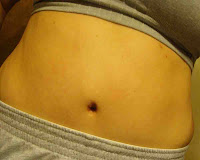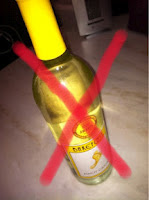Thursday morning I woke up sad and teary. I was not having negative though patterns. I did not feel hopeless. I just had very low energy (the moving through molasses feeling) and was uncontrollably teary.
The kids were difficult that morning when I was getting them up and off to school. I had two hours between the kids leaving and getting to work. I did some computer work, then showered and left for my workplace.
On my way to work tears kept running down my face. My husband called to see if I was all right. He could tell I was having a difficult morning earlier. This was very sweet and caring, but it seemed to make the crying worse. It's like the dam broke. I went in my office, closed the door, and kept unsuccessfully trying to get the crying under control. So I figured out how I could work at home, and took a sick day.
The following morning I was still having the same issues. I was not as teary, but still had low energy. I was able to go to work for a while, but, in the afternoon, again opted to work from home.
11/19 & 20th: I had another dip in mood. Same type of thing, teary and slow. Then my period started on 11/20. That may explain a lot about this two-part, somewhat mild depressive episode.
11/27: No more depression. Back to hypomania. No exercising enough. Gotta get back in that habit.
What May Have Triggered This Episode of Depression
This Wednesday, one of my days off, I went out with a group of friends during the day and hosted my in-laws for dinner that evening. Although on many workdays, I am in front of large groups of people for many hours, this day out and dinner was way more socializing than I usually do. I also took almost the entire day off. It is rare that I don't do at least some work every day. I also had not been reliably compliant with my daytime depression meds for the preceeding few days. Thinking about all of this, these are some of the possible triggers for this episode:
- A change in my social behavior. I sometimes slip into depression when we have family visiting, with a steady stream of social activities. My head needs a certain amount of downtime to decompress.
- Slowing down from my Type-A, high-efficiency get-things-done mode. I normally operate in a hypomanic state, and find when I slow down, depression often "catches up" with me.
- Obviously not being consistent with some of my meds could have been, at the very least, partially responsible for this depressive episode.
- Looks like menstrual cycle could have had a lot to do with this series of depressed days. Will see what happens pre-period in months to come.
How I Pulled Out of My Depressive Episode
A couple of things definitely contributed to my emergence from this brief bout of depression. I did start taking my meds as directed, but this would not have had an effect on my mood immediately.
- Taking a couple days with a lot of alone time definitely helped.
- My secret weapon: I haven't been totally honest on is blog about how I manage my disorder. I used to take Ritalin to pull out of depression, but found that it made me way too jumpy and nervous. I found that cannabis, smoked in very low doses (leaves of female plant, not buds) nearly always propels me out of depression. It makes me a little jumpy, but no where near as much so as Ritalin or Zoloft did. I haven't talked about this on the blog for a couple of reasons...the fact that use of cannabis is still illegal federally, and that marijuana is not necessarily a good treatment for other people with bipolar. Everyone reacts differently to cannabis, and it is difficult to precisely control the dose. I have found some scientific articles on cannabis use in bipolar, and plan to write a post on the findings, but overall cannibis use is associated with a history of psychosis and appears to be suggestive of poorer clinical prognosis, and I do not know how much cannabis the study subjects had used.

















